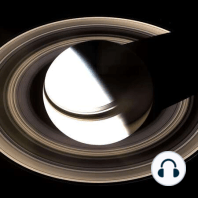72 min listen

Black Holes and the Technology to Find Them
Black Holes and the Technology to Find Them
ratings:
Length:
63 minutes
Released:
Apr 10, 2024
Format:
Podcast episode
Description
A Non-technical Talk by Dr. Jessica Lu (University of California, Berkeley) on March 13, 2024The population of black holes, objects left over from dead stars, is almost entirely unexplored. Only about two dozen black holes are confidently known in our Galaxy. As a result, some of the most basic properties of black holes remain unknown, including the true number of black holes in the Galaxy, their masses and sizes, and how the black holes were formed. Dr. Lu discusses how she and other astronomers are using "gravitational lensing" -- something predicted by Einstein’s work -- to open a new window onto black holes, and how the first free-floating black holes are now being discovered. She explains, in everyday language, why astronomers expect that the number of known black holes will increase by a factor of 100 over the next decade.
Released:
Apr 10, 2024
Format:
Podcast episode
Titles in the series (45)
Lick Observatory During Pandemics: 1918 and 2020 (with Dr. Elinor Gates) by Silicon Valley Astronomy Lectures